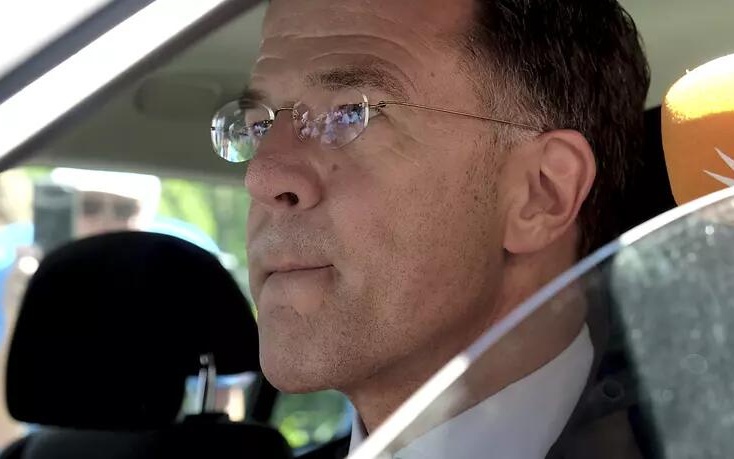Mark Rutte, the departing Prime Minister of the Netherlands (Michael Corder/AP/DPA)
The Dutch have an adage, “If one sheep crosses the dam, more will follow.”
The saying is usually held up as reinforcement that if one person has the courage to try something new, others will do so.
But in 2023, after the success of radical right factions across Europe from Italy to Austria to Spain, the epigram could have a different significance: will the liberal confines of The Netherlands be broken in November’s elections?
As the 12-year rule of Prime Minister Mark Rutte draws to a close, the nation finds itself on the precipice of both the end of an era and of the potential destabilization of its famed moderate and pragmatic political landscape.
A “New Social Deal” — But What Does It Mean?
“What I am doing now is looking forward,” said Rutte’s successor, Dilan Yeşilgöz, when asked what she thought of the “We want less Moroccan” chant of the leader of the far-right Party of Freedom (PVV), Geert Wilders.
But the answer was an evasion. In contrast to Rutte, Yeşilgöz is not ruling out a coalition with the PVV. And the 46-year-old — despite a personal history woven in the multi-cultural fabric of Dutch society — intends to steer the liberal right toward the harsh anti-migration policies promoted by the far right.
This could open up space for the conservative Pieter Omtzigt, who launched his New Social Contract Party last month. The NSC enjoys widespread support across the political spectrum, with followers from both the left and the right.
While opposing labor immigration, Omtzigt is not building a campaign around the issue. He prefers a “New Social Deal” platform of reducing Dutch bureaucracy and combatting poverty, a combination of cultural conservatism and a social left economic stance.
The NSC is not the only newcomer shaking up Dutch politics and thus complicating predictions. The Farmers Peoples Movement (BBB) was established last year as a right-wing populist party centered upon agricultural issues, notably a scepticism of — even a hostility to — European Union policies over sustainable farming.
The BBB soon put itself on the political map with its portrayal of a Parliamentary elite that do not care about the needs of people in the countryside. In March’s provincial elections for the Senate, it finished ahead of Rutte’s People’s Party for Freedom and Democracy.
Both moderate and left-leaning parties have struggled with the conundrum of an effective policy on migration, amid the heated rhetoric stirred up by the far right.
A notable exception could be an alliance between Social Democrats and GreenLeft, spearheaded by the former Vice President of the European Commission, Frans Timmermans. This alighment could put a priority of policies for environmental and social welfare, alongside a measured approach to migration.
But even if the alliance can maintain a sanctuary for the center left — and even if it was the leading party in November’s vote — it is unlikely to find the necessary coalition partners to back a left-green program. To gain power, Timmerman would have to make some accommodation with the lurch to the right.
Crossing the Dam?
If the sheep does not cross the dam, it could be because of a Dutch political culture of pragmatism over ideology.
Still, even a pragmatic focus could boost the right. Migration may be framed within a shortage of housing in one of the most densely-populated countries in Europe. With large parts of the country defined as natural reservoirs preserved by European Union regulations, construction is restricted. There is no scope to reducd the shortage of almost 400,000 houses, while new asylum seekers and migrants need shelter.
There are enough moving pieces — the left-green alliance, Omtzigt’s NSC, the farmers’ BBB, and the state of the long-time leading VVD — to unsettle any prediction of the election on November 22.
A priority on migration — or, rather, anti-migration — and commercial farming will likely help the right and far right. Discussions about economic stability and social welfare play to the center and left. Attention to the environment, climate change, and the “green economy” — especially if framed as a vital marker of The Netherlands’ importance in the EU — could boost the left-green alliance.
And then there is the more abstract notion of Dutch political culture: does a reputation for liberalism, the progressive, and pragmatism still matter?
Or has The Netherlands now just a follower across the dam towards the right — and even the far right?


Damn. Nice post!!